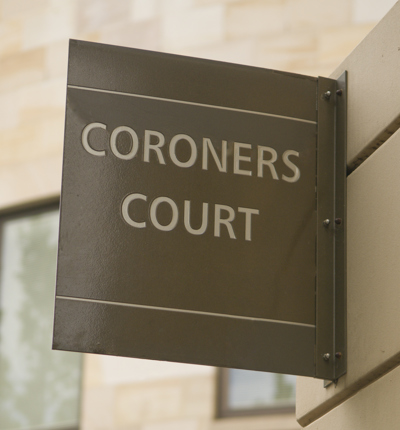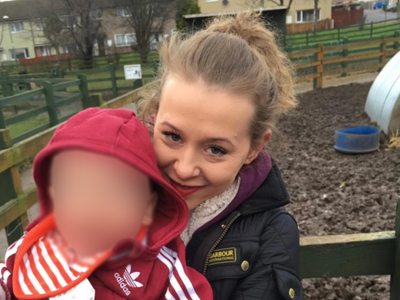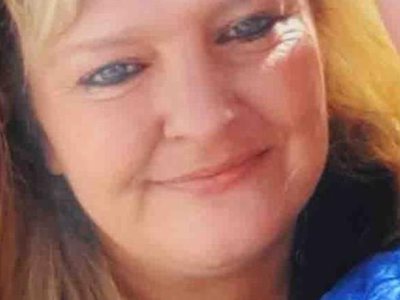
Court of Appeal judgment in the Dove case: what comes next and what does it mean for other inquests?
Solicitors Merry Varney and Dan Webster, alongside barrister Jesse Nicholls of Matrix Chambers, discuss the latest ruling in their case on behalf of Joy Dove, the mother of Jodey Whiting, and its potential wider impact for other bereaved families.
Posted on 13 April 2023
On 17 March 2023, the Court of Appeal handed down its judgment in respect of our client Joy Dove’s application for a new inquest into the death of her daughter, Jodey Whiting. The court held that it is desirable in the interests of justice for a new inquest to be held into Jodey’s death.
The judgment is the culmination of a long legal process and a determined campaign for a new inquest by Jodey’s mother, Joy. It is of great significance, not only to Jodey’s family, but potentially to many other bereaved families going through the inquest process in future. In this blog post, we look at what the judgment means, both in Jodey’s case and more widely.
The long road to a new inquest
Jodey died on 21 February 2017 having taken an act which ended her life. She had mental and physical disabilities and had been in receipt of social security benefits for over 10 years. Her family felt that the termination of her benefits by the DWP a short time earlier, while Jodey was bed-bound with serious health problems, was a significant factor in her death.
Joy has been tireless and fearless in campaigning for justice for Jodey ever since. The legal process to get to this stage has been long and arduous: the first inquest into Jodey’s death was held in May 2017 and lasted just 37 minutes. Although Joy explained to the coroner the family’s concerns about the termination of Jodey’s benefits, there was no other evidence available at that time about the DWP’s failings or their impact on Jodey. As such, the coroner refused to investigate the role of the DWP and recorded that Jodey died by suicide without making any reference on the Record of Inquest to the DWP’s actions.
Joy first contacted Leigh Day in March 2019 after receiving an independent report which set out numerous significant failings in the DWP’s handling of Jodey’s benefits and the decision-making that led to their termination immediately prior to her death. Joy wanted an investigation that could consider the role of these failings in her daughter’s death.
In January 2020, we submitted an application on our client’s behalf to the Attorney General for a ‘fiat’ - a form of authority which is required in order to apply to the High Court for a new inquest. The application was made on the basis that there was new evidence, which had not been available at the time of the first inquest, and which required a new investigation. This fresh evidence was the independent report regarding the DWP’s failings and a report from a psychiatric expert, Dr Trevor Turner, who concluded that there was likely to have been a causal link between the DWP’s failings and Jodey’s state of mind, which led her to take the act that resulted in her death.
After a long wait, the fiat was granted in November 2020 and Joy was able to apply to the High Court for a new inquest. At a hearing in June 2021, the High Court heard legal arguments on Joy’s behalf as to why a new inquest was required. However, arguments were also put forward by the coroner who had conducted the first inquest into Jodey’s death, and by the DWP, to the effect that a new inquest was not necessary. In September 2021, the High Court delivered its judgment: it was not persuaded that the fresh evidence was sufficient for a new inquest to be required.
The High Court’s decision was a huge disappointment for Jodey’s family, but Joy’s determination to continue the fight for a new inquest did not waiver. An application for permission to appeal to the Court of Appeal was submitted in November 2021, and then followed a long and anxious wait for the court’s decision.
Nearly a year later, in September 2022, the court granted permission. It came as a huge relief to Joy to know that there would be another opportunity to argue her case to a bench of Court of Appeal judges. The appeal hearing was held in early 2023, with the coroner and the DWP again making arguments to the court that a new inquest was not required.
After such a long and challenging legal battle, the Court of Appeal judgment, granting a fresh inquest into Jodey’s death, is of immense importance to Joy and her family. It represents a remarkable achievement by Joy, who has been indefatigable in seeking justice for Jodey and change for other vulnerable benefits claimants. A fuller background to Jodey and Joy’s life, and Joy’s battle for justice can be found in Joy’s book, ‘A Mother’s Job’.
The Court of Appeal judgment.
The legal arguments made to the Court of Appeal as to why a new inquest was required were split into two ‘grounds’: the first was that a new ‘non-Article 2’ or Jamieson inquest was required in light of the fresh evidence; and the second was that, in the alternative, Article 2, the right to life, required a new, wider inquest, or Middleton inquest.
The Court of Appeal accepted Joy’s case on the first ground: it held that a new Jamieson inquest is required, based in particular on the fresh evidence of the psychiatric expert, Dr Turner. In the court’s words (at paragraph 65), Dr Turner’s evidence relates to “the way in which the abrupt cessation of benefits is likely to have affected Jodey’s state of mind.” This was described by the Court as “an issue well within the scope of a Jamieson inquest”, assisting the coroner in considering both whether Jodey intended to take her own life and whether to record, in a narrative conclusion, “the extreme anxiety and distress that Jodey might have been suffering in the moments before she took her own life”.
The Court went on to state (at paragraph 66) that it accepted Joy’s argument that “it would be open to a coroner presiding over a fresh inquest and with the benefit of Dr Turner’s report…to find as a fact that the sudden withdrawal of benefits by the Department contributed to the deterioration in Jodey’s mental health state.” On that basis, it held that it would be open to a coroner to record, in a narrative conclusion, that Jodey “took her own life as a result of a deterioration in her mental state exacerbated by the abrupt cessation of her ESA on 7 February 2017 by the Department”. The court explained that this is “a brief, neutral, factual statement” of the type which can be adopted in a Jamieson inquest.
Crucially, when applying the statutory test for a new inquest under section 13(1)(b) of the Coroners Act 1988, the court concluded that “it is in the interests of justice that Mrs Dove and her family should have the opportunity to invite a coroner, at a fresh inquest, to make a finding of fact that the Department’s actions contributed to Jodey’s deteriorating mental health and, if that finding is made, to invite the coroner to include reference to that finding in the conclusion on how Jodey came by her death.” It explained that it reached that conclusion based on the following:
- The ‘real significance’ to Joy and her family of investigating the extent to which the DWP’s actions contributed to Jodey’s mental health difficulties
- The fact that “there is a public interest in a coroner considering the wider issue of causation raised on this appeal. If Jodey’s death was connected with the abrupt cessation of benefits by the Department, the public has a legitimate interest in knowing that. After all, the Department deals with very many people who are vulnerable and dependent on benefits to survive, and the consequences of terminating benefit payments to such people should be examined in public, where it can be followed and reported on by others who might be interested in it.”
- That it is “at least possible” that the Coroner at the new inquest will wish to submit a ‘Prevention of Future Deaths’ (PFD) report to the Department of Work and Pensions, based on the evidence of its failings in Jodey’s case.[2] “It is in the public interest that the coroner at least be given the opportunity to consider whether a PFD report is warranted, in light of the fact that Jodey’s benefits were cut off abruptly, in error, as we now know. If the coroner concluded that the error had contributed in any way, direct or indirect to Jodey’s death, that would be a serious matter to which the Department should be alerted, in order that remedial steps can be taken.”
On the second ground, the Court held that the DWP did not owe Jodey an ‘operational duty’ to take steps to protect her life under Article 2. The Court explained that this was a decision that was based on the specific facts of Jodey’s case, with the key factors being as follows:
- The Court did not consider that the DWP knew, or ought to have known, that Jodey’s life was at real and immediate risk at the relevant time (a high threshold set by the Article 2 case law);
- The Court did not consider that the DWP had assumed responsibility for Jodey to safeguard against the risks of suicide or self-harm.
The Court explained that this decision was “not to ignore the multiple failings” by the DWP, including the failure of individuals to follow relevant systems and policies at crucial points, but that this was not in itself sufficient to render the DWP responsible for Jodey under the European Convention on Human Rights.
What does the judgment mean?
First and foremost, the importance to Jodey’s family of the court’s decision cannot be overstated. For them, it offers the prospect of a long overdue public investigation of the relationship between the DWP’s failings and Jodey’s death. Importantly, both for Jodey’s family and for the wider public, it also offers an opportunity for public accountability and learning in respect of the wider issue of how the DWP interacts with benefits claimants who are suffering mental and/or physical ill-health; an issue of acute and growing public concern in the years since Jodey’s death.
It will be for the coroner at Jodey’s fresh inquest to decide what evidence to seek from the DWP, including about any steps that have been taken since Jodey’s death to improve its policies and procedures in order to avoid future deaths. However, the Court of Appeal judgment makes clear that this was an important part of the justification for a new inquest. Jodey’s family remain determined to ensure that meaningful lessons are learned by the DWP from Jodey’s death,as well as other tragedies in the years since, such as the deaths of Errol Graham and Philippa Day, as summarised here.
The Court of Appeal judgment is also likely to be of significant value to other families going through the inquest process, or seeking a new inquest into their loved one’s death. It is likely to be particularly helpful in circumstances where Article 2 is not engaged and the family are asking a coroner to investigate factors which may have led the deceased to take their own life.
Some of the most important points arising from the judgment are the following:
- The judgment is the first time in years that the Court of Appeal has considered the statutory test for a new inquest under section 13(1)(b) of the Coroners Act 1988. The court confirmed that a broad approach should be adopted, with particular focus on the possibility (not probability) of a different outcome, and the public interest in ordering a fresh inquest (see paragraphs 8-9 and 72-73).
- The judgment confirms (at paragraphs 18 and 69) that the test for causation at a non-Article 2 inquest is “whether, on the balance of probabilities, the conduct in question more than minimally, negligibly or trivially contributed to death.” As such, it is a “broader concept” than just assessing whether the relevant conduct ‘caused’ or was ‘responsible for’ a death. The judgment states that, to the extent that “the Divisional Court approached causation on the basis of whether the death would have occurred ‘but for’ the particular act or omission, they were in error” (paragraph 69).
- The Court of Appeal emphasised that narrative conclusions, summarising the underlying causes of death, are appropriate – and may be required – in non-Article 2 inquests (paragraphs 15-17). Such narrative conclusions can include “facts which form part of the circumstances leading to death” (paragraphs 53 and 66)
- Importantly, in the context of self-inflicted deaths, the judgment establishes that “it is open to a coroner in a suicide case to consider the extent to which acts or omissions contributed to the deceased’s mental health deterioration, which in turn led them to take their own life” (paragraph 69). The court did not accept the submission, made on behalf of the coroner who conducted Jodey’s first inquest, that it “is not or should not be open to a coroner to investigate the impact of past events on a person’s mental health in a suicide case, and that to do so would represent an extension of the law which would be unwelcome and unnecessary” (paragraph 70). Rather, it held that “it is open to a coroner to record the facts which contributed to the circumstances which may…in turn have led to death”. It could “find no support for Mr Hough’s [Counsel for the Coroner] suggestion that a distinction must be drawn between physical causes…and psychiatric causes which might have exacerbated mental illness.” The court made very clear that such a distinction would “lack principle” and that it would be “undesirable to restrict a coroner’s discretion to conduct whatever investigations are appropriate” to establish how the deceased came by their death. These findings should help bereaved families in asking coroners to investigate factors that may have made a material contribution to a self-inflicted death rather than limiting their investigation to the immediate mechanism of the death.
- The judgment goes on to confirm and emphasise the ‘public interest’ function of inquests in seeking to establish the ‘substantial truth’ relating to a death, investigate and record as many of the facts concerning the death as the public interest requires, expose to public examination matters of legitimate public interest, and offer the possibility of learning and the prevention of future deaths (paragraph 72). This is a function that is served by a coroner’s investigation irrespective of the conclusions that are ultimately reached. In Jodey’s case, the judgment states that “the public has a legitimate interest in knowing” whether the DWP’s actions contributed to her death. This is likely to apply in many other cases where the acts and omissions of public bodies, or other organisations, arguably contributed to a self-inflicted death, particularly where the coroner’s duty to consider the prevention of future deaths may be engaged. It illustrates the importance of coroners obtaining evidence that the public interest requires, even where this may not form part of the coroner’s findings of fact or conclusion.
- Although the court’s conclusion that the DWP did not owe Jodey an ‘operational duty’ under Article 2 is disappointing, the judgment makes clear that this was a decision based on “the facts of this particular case” (paragraphs 85 and 100). It does not purport to establish that such a duty can never be owed by the DWP to a benefits claimant. Rather, the position remains that an operational duty will arise where the necessary criteria laid down by the Supreme Court in 2012, in the case of Rabone[3], are established. The court also accepted that, where those criteria are arguably met, it may be necessary to consider whether a particular case represents “the sort of incremental development of the law that Lord Dyson referred to in Rabone” (paragraph 85). On the facts of Jodey’s case, it found that this issue did not fall to be considered. However, this is an issue that will need to be addressed in future cases (particularly where a court is satisfied, unlike in Jodey’s case, that there was a real and immediate risk to life of which the public authority in question was or should have been aware).
Overall, we believe that the judgment is very positive in many ways. Bereaved families now have the benefit of Court of Appeal authority to support their argument for coroners to investigate factors which contributed to their loved one’s mental health deterioration, and the decision to take their own life, where the public interest requires it. As we have already seen in inquests raising similar concerns to those in Jodey’s case (such as the inquest into the death of Phillipa Day) and, for example, in inquests involving gambling harms (such as the inquest into the death of Jack Ritchie) and online harms (such as the inquest into the death of Molly Russell), investigation of these factors by coroners can be a powerful tool for significant public learning and the prevention of future deaths. It is very welcome to see the Court of Appeal endorse that approach.
Joy was represented in the Court of Appeal by Jeremy Hyam KC of 1 Crown Office Row and Jesse Nicholls of Matrix Chambers. Her legal costs have been funded by legal aid and Joy is grateful to the Legal Aid Agency for providing funding.

Merry Varney
Merry is a partner in the human rights department and head of the Leigh Day inquest group




